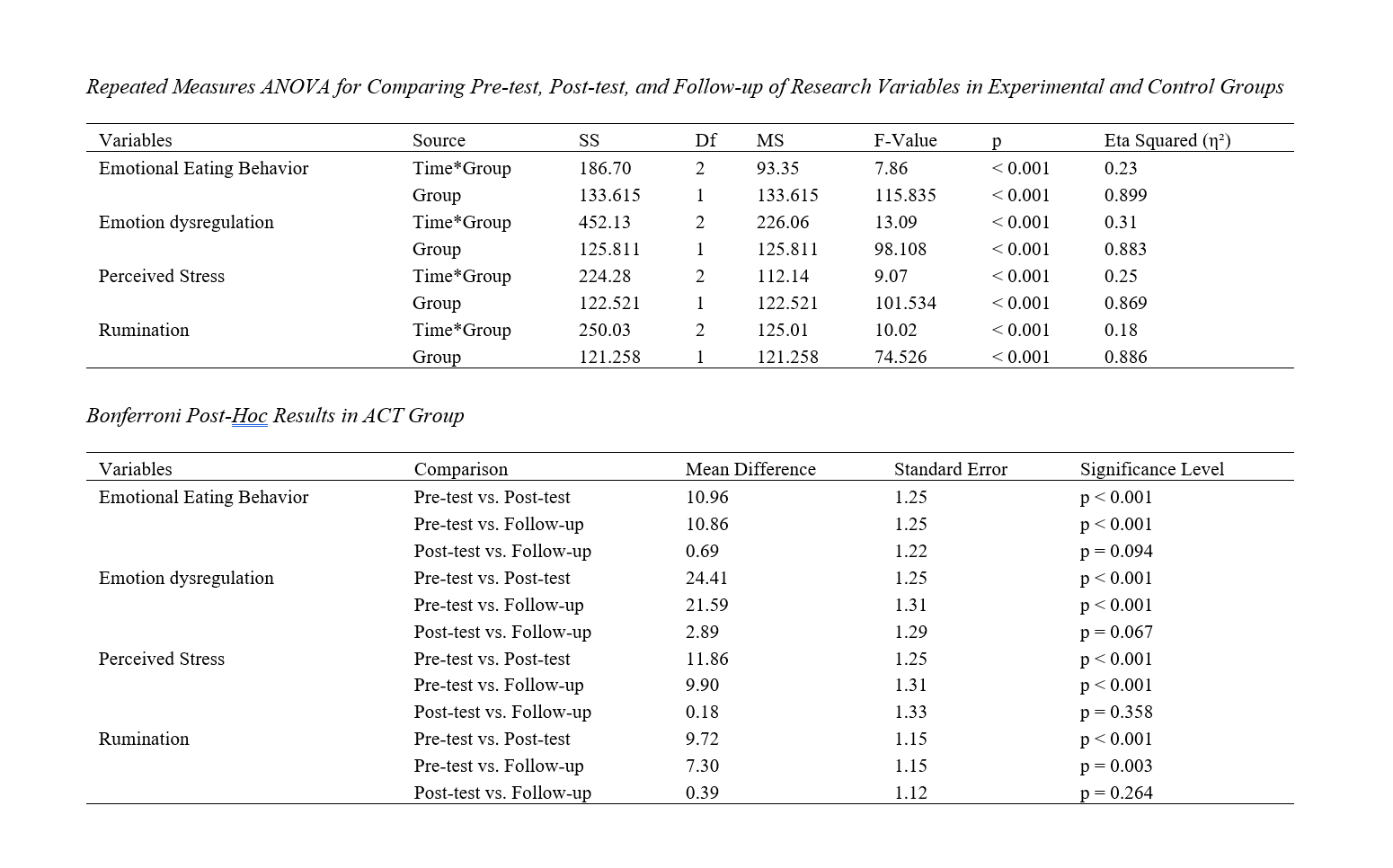Effectiveness of Acceptance and Commitment Therapy on Emotional Eating Behavior, Emotion dysregulation, Perceived Stress, and Rumination in Women with Chronic Obesity
Abstract
Objective: The present research aimed to determine the effectiveness of Acceptance and Commitment Therapy (ACT) on emotional eating behavior, emotion dysregulation, perceived stress, and rumination in women suffering from chronic obesity.
Methods and Materials: This study was a quasi-experimental design with pre-test, post-test, and follow-up phases, including a control group. The research population consisted of all women suffering from chronic obesity and body mass index, visiting the Kian City Nutrition Counseling Clinic in Tehran between May and July 2022. For forming two groups, 30 women with chronic obesity and body mass index were initially selected through screening, and then randomly divided into 15 patients in the experimental group and 15 in the control group. The ACT treatment program was conducted over 8 sessions of 90 minutes each, based on the protocol by Neff and Germer (2013). The instruments included the Eating Behavior Questionnaire by van Strien et al. (1986), the Emotion dysregulation Questionnaire by Gratz and Roemer (2004), the Perceived Stress Questionnaire by Cohen et al. (1983), and the Rumination Questionnaire by Nolen-Hoeksema and Morrow (1991). Data were analyzed using repeated measures ANOVA.
Findings: The results showed that ACT had a significant effect on improving emotional eating behavior (F=115.83, P<0.001), emotion dysregulation (F=98.10, P<0.001), perceived stress (F=101.53, P<0.001), and rumination (F=74.52, P<0.001) in women with chronic obesity and body mass index (P>0.05).
Conclusion: Therefore, it can be concluded that Acceptance and Commitment Therapy contributes to the improvement of emotional eating behavior, emotion dysregulation, perceived stress, and rumination in women with chronic obesity.
Downloads

Downloads
Additional Files
Published
Submitted
Revised
Accepted
Issue
Section
License

This work is licensed under a Creative Commons Attribution-NonCommercial 4.0 International License.








